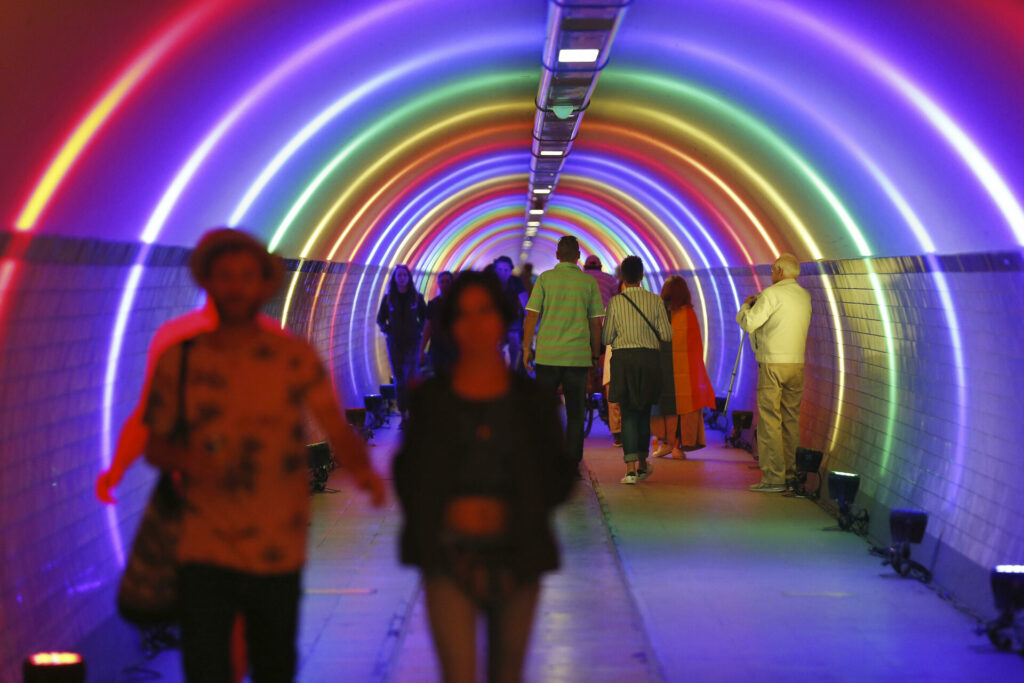In the run-up to the Antwerp Pride this week, a survey of 400 LGBTQ+ people in Flanders showed that 25% of them had experienced physical violence due to their gender or sexual identity.
While Flemish people are tolerant towards people with a non-heterosexual orientation in theory, nearly one in four believes that same-sex couples should not be able to adopt a child, and over 40% do not think it is normal that gay men hold hands in public, a survey by Het Laatste Nieuws and VTM News showed.
Additionally, 25% of LGBTQ+ people said that they have already been physically threatened or attacked because of their orientation or gender identity. However, this figure is expected to be a lot higher, as many people never report.
"A worrying figure," Bart Abeel, organiser of the Antwerp Pride, told Het Laatste Nieuws. "It just indicates that, despite the high level of awareness in our society, there are still a lot of people where there is a great suspicion or resistance towards a non-heteronormative sexuality."
'Unfortunately not surprising'
One in three respondents also indicated that their sexual orientation or gender identity limits their opportunities in society, and only half of the respondents said they feel safe expressing their orientation or gender identity in public.
In a reaction to the survey results, Flemish Minister for Coexistence Bart Somers issued a press release stating that "these are figures that would make one speechless, but unfortunately, they are not surprising. Too often, LGBTQ+ people today do not feel safe in the streets simply because too often, they are not," he said.
Last year, Somers implemented an action plan together with the local Flemish authorities to make a difference for LGBTQ+ people, by creating physical and virtual so-called safe(r) spaces, where victims of violence or (sexual) harassment can tell their story and get help.
However, Somers stressed that in addition to taking care of victims, there is obviously also a need for a structural approach in society itself. While Belgium is among the worldwide pioneers in terms of equal rights, these rights must also be translated into everyday life.
Related News
- Flanders would rather see women holding hands than men
- 'Not enough to be tolerant': 100 actions to make Belgium more LGBTQ friendly
- 'Needed more than ever': Belgian Pride returns to Brussels
"These survey results, however, show that this is not always the case," he said, adding that his plan consists of 24 robust projects, from ensuring safety in certain neighbourhoods to training people to react when they witness homophobia.
"Coexisting does not happen in the parliament, but on the village square," Somers emphasised. "This is how we will make our society a safer and more tolerant place. And also how we make sure that figures from future research go in the right direction."
If you have questions or feel the need to talk, you can contact Lumi, a free and anonymous information line for anyone with questions about gender and sexual diversity.

